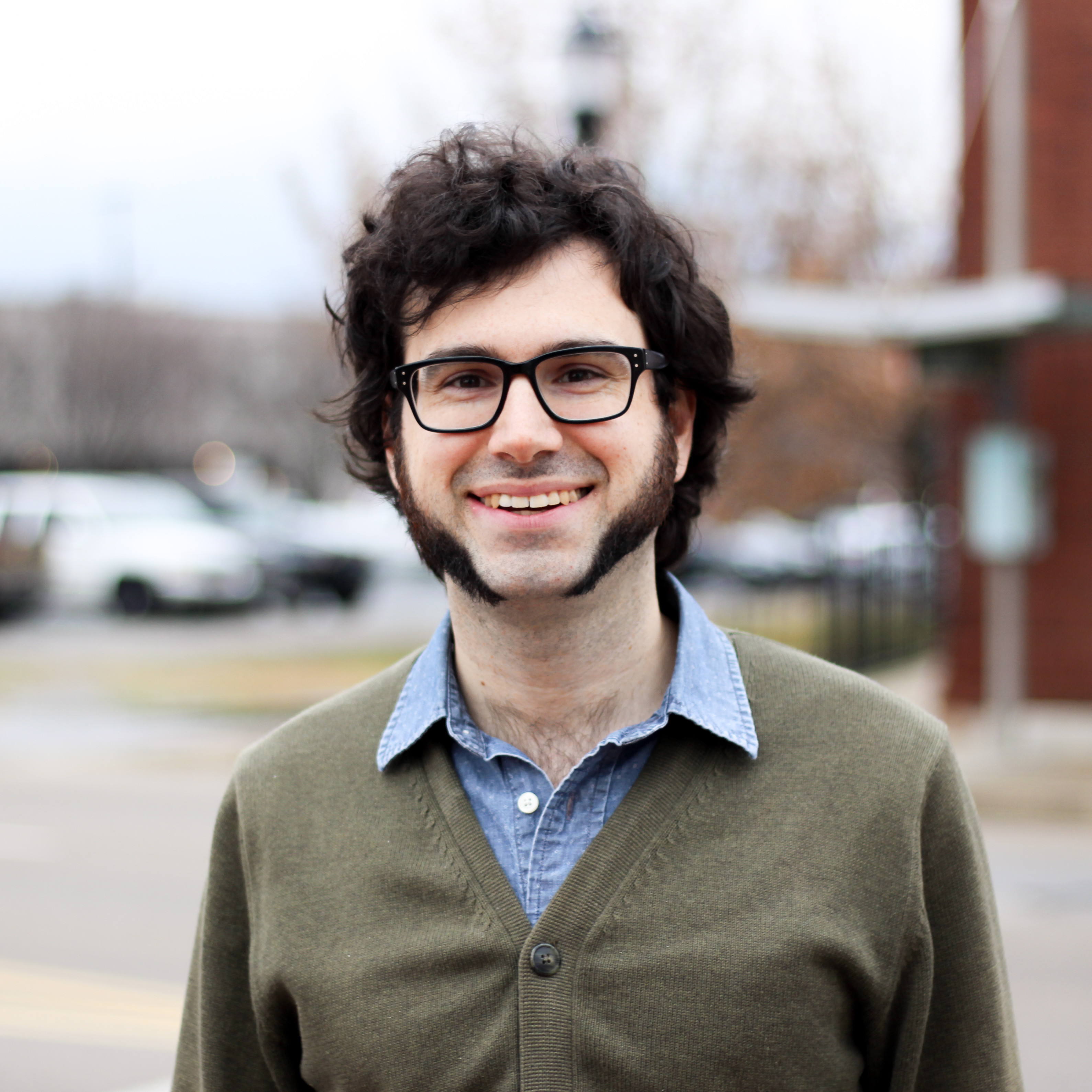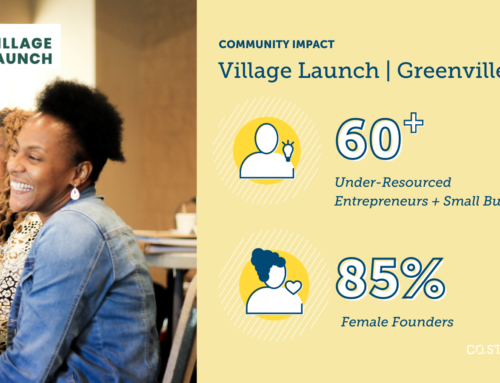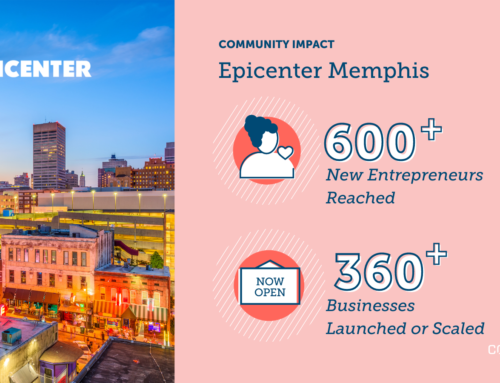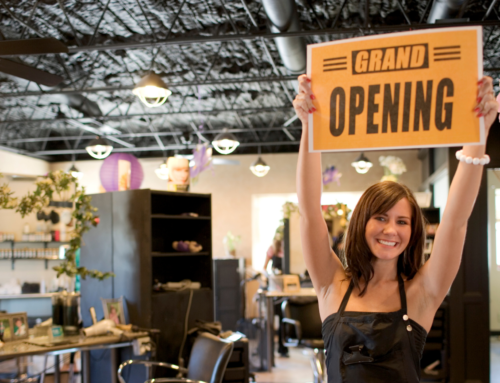Part three of a series from our founder on exploring a new approach to economic development that places individuals, families, and entrepreneurs at the center.
By Enoch Elwell
Open your phone, select your favorite feed, and start scrolling. If you think hard about what you are seeing and reading, one thing is abundantly clear: We are on the brink of an unfamiliar world. Most of us are standing on the edge, trying to peer over and see what that brand-new world will look like. Will there be economic opportunity for all? Will there finally be equity in healthcare? Will every child be equipped with the education and relationships needed to thrive, regardless of where they are born? Will each of us be able to find meaning and significance in our work as we achieve our personal potential?
Can we create communities where everyone is truly valued and welcomed?
Some of us are waiting to see if the Next Economy is really on its way—and some of us are working to will that Next Economy into existence, where business helps build a world where everyone is truly valued and welcomed in a community of belonging.
Just as business innovations have shaped our society in the past, business creation and entrepreneurial thinking will play a foundational role in ushering in an economy where each of us can become our best selves as we build a better world for others. An important step in turning our current, badly damaged economy into the Next Economy we all need will be providing the community, training, and support needed to help entrepreneurs live out this transformative mission in their business.
Ushering in the Next Economy will also require local governments to embrace the notion that raw job creation numbers are a very inadequate way to measure meaningful community transformation.
What does meaningful opportunity look like in the Next Economy?
Jobs that pay a living wage and provide true economic security are an important start—but that is just the beginning. Almost any Bruce Springsteen song teaches us that while a job working the line may have provided economic security, it often did not create a sense of fulfilling one’s potential. A job that is just a job is also easily replaced with the cost saving allure of automation, or to trade away for the abstract benefits contained in the fine print of a free trade agreement. An approach to economic development that measures success in raw job numbers can also easily be forsaken for an approach to economic development that measures success in GDP growth.
(And what is the downside of measuring economic success solely through a high GDP? Read our prior post about the trials and tribulations of Bezosistan to learn more.)
Instead, we need to celebrate maverick business founders who embrace their dual roles of business leader and community change agent.
But what do we need to do to nurture communities that already support the development of entrepreneurs who have a mission to make money and make a difference?
We can start by building up a network of relationships with clarity of purpose, creating density of trust. These “entrepreneurial ecosystems” with a high level of trust help foster the risk taking that true innovation requires—and true innovation is not just defined by technical achievement. A multi-generational trucking company in Chattanooga or Albuquerque may not be all that technically innovative. It may offer a slightly different version of the same solution its competitors are providing.
Just as business innovations have shaped our society in the past, business creation and entrepreneurial thinking will play a foundational role in ushering in an economy where each of us can become our best selves as we build a better world for others.
However, the culture and ethos of that organization may have an outsized impact on the economic health of the community by prioritizing living wages, establishing an environment that encourages employees to be innovative within their individual roles, reinvesting back into the same ecosystem that launched the company, and catalyzing the creation and relocation of dozens of other innovative companies. That is real, meaningful innovation. In fact, it is the type of human-focused innovation more companies need to embrace.
Companies like that do not just exist in the imaginations of ecosystem builders and economic developers. There are hundreds of purpose driven-founders around the country risking everything in the search of better ways to structure and lead their companies for the well-being of the world
Dan Price, the CEO of Gravity Payments, famously embarked on a brave experiment when he established a $70,000 minimum wage for his company in 2015. Mr. Price had a clear purpose in his goal of improving the lives of those around him. He took an innovative risk, bringing his team together in a way that built density of trust and increased loyalty, productivity, and profitability.
Dan Price knew that even if he failed, no one would consider him a failure.
At its core, Gravity Payments is one of several payment processing options companies have. What differentiates them is not a high minimum wage, but a clarity of purpose. They are here to make money and make a difference, in part because they got their start in an entrepreneurial ecosystem that long ago adopted a more expansive view of the role entrepreneurs and businesses play in building economically healthy communities.
A culture rich in social capital—collaboration, cooperation, trust, reciprocity, and a focus on the common good—make an ecosystem come alive by connecting all the foundational elements together.
Not all jobs or companies are created equally. Some will inevitably have more impact than others.
But every company that takes the opportunity to internalize the values of the Next Economy from an ecosystem grounded in a density of trust and clarity of purpose has an opportunity to internalize the values play a role in helping individuals, families, and communities fulfill their potential.

ABOUT THE AUTHOR
Enoch Elwell is the founder and Chief Executive Officer of CO.STARTERS, as well as the co-founder of The Company Lab and a serial entrepreneur. He lives with his wife and children in Chattanooga, Tennessee. Follow him on LinkedIn, Medium, and Twitter for more thought leadership on economic development and entrepreneurship.
Want to unlock the potential of entrepreneurship to create a better future?
Schedule a call to see how CO.STARTERS can help.



